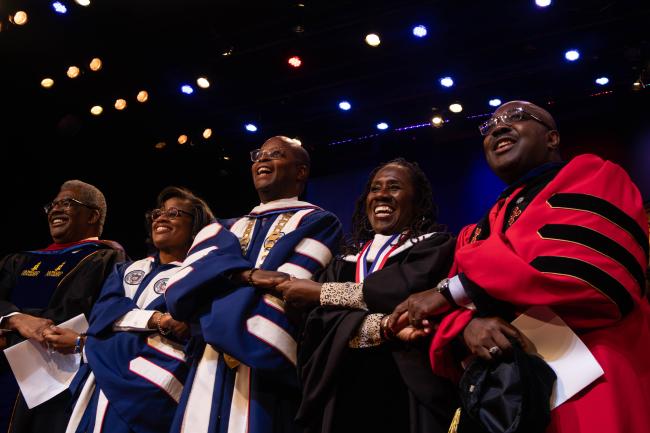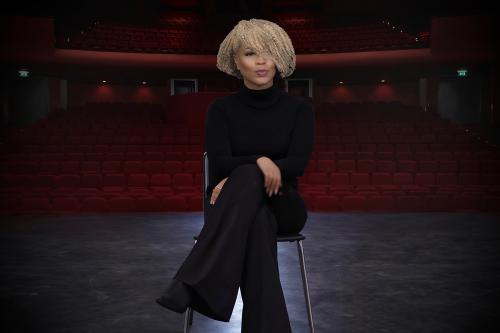Howard University leaders opened the academic year Sept. 19 with its 158th Opening Convocation ceremony that acknowledged the weight of changing times. Convocation keynote speaker Sherrilyn Ifill, a Howard School of Law professor, cited the “heaviness in the land” but urged students to see the moment as time for democratic renewal.
“Those of us on this stage lived and benefited from the harvest of the Civil Rights Movement,” Ifill said. “But harvest is not forever; you have to plant too. And right now, I believe it is planting time. It doesn’t mean we don’t fight, it means we fight and we plant. Who knows what the harvest will yield when it springs forth.”
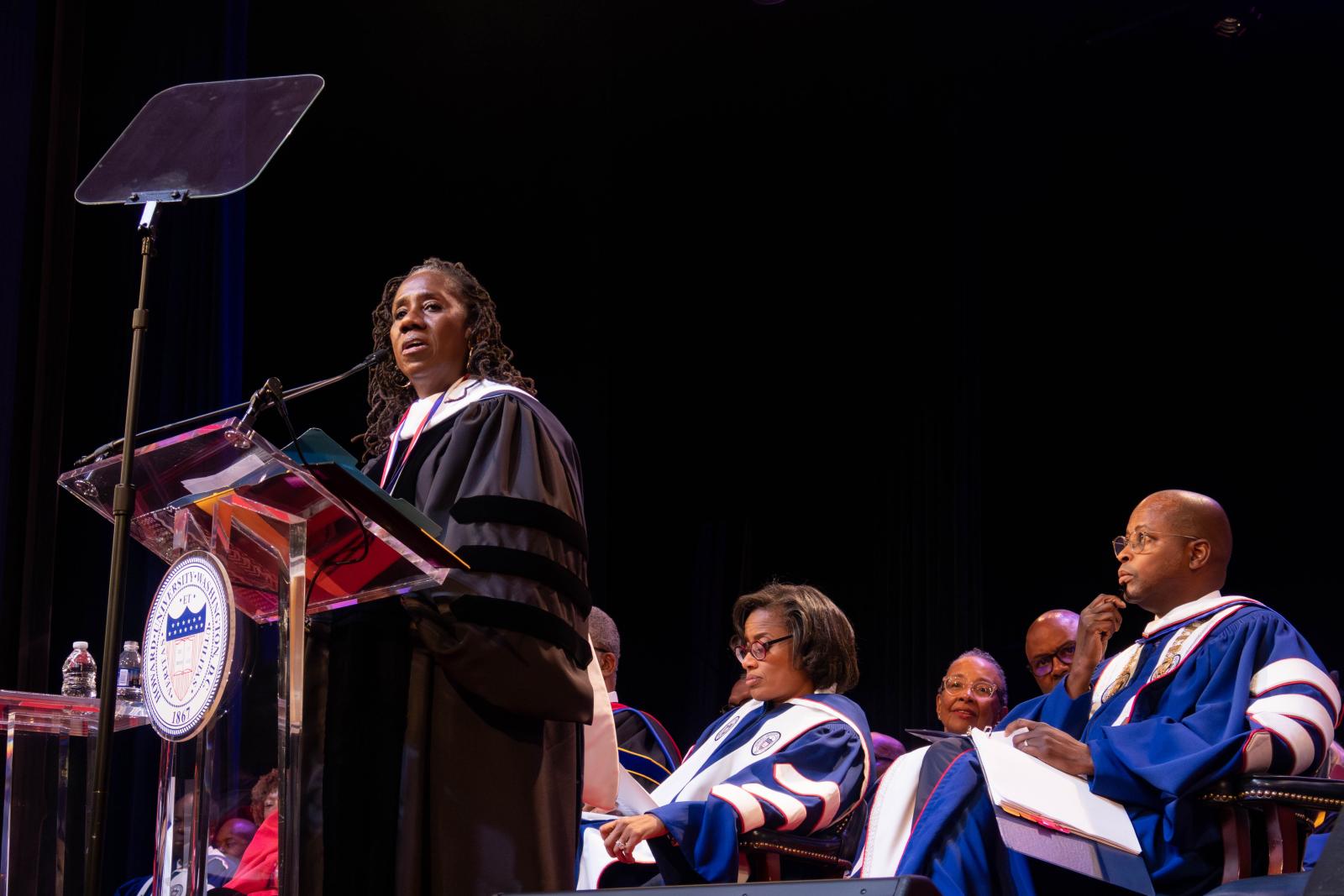
Convocation is a formal event that officially signals the beginning of the academic year. It brings together students, particularly new students, along with the university’s faculty, staff, alumni, and administration.
Ifill holds the inaugural Vernon E. Jordan Jr. and Dow Chair in Civil Rights at the Howard School of Law and founded the school’s 14th Amendment Center for Law and Democracy.
Ifill said emotions in Black Americans of “fear, sadness, confusion, anger, even grief” were real, but not the whole story. She urged students to see the start of the semester as “an opportunity to celebrate a new beginning, a new academic year, a new season. A chance for a new sense of purpose and promise.”
Answering the 'Call to Serve'
This year’s convocation comes as the university is undergoing a leadership transition. Last month, Howard’s Board of Trustees tapped Wayne A. I. Frederick, a three-time Howard graduate who served as president from 2014 to 2023, to return as interim president. Leslie D. Hale, a 1994 Howard business alumna and the president and CEO of RLJ Lodging Trust, was elected chair of the Board of Trustees.
Addressing the convocation audience, Frederick stressed the importance of practicing citizenship through everyday acts of respect and collective care, while also reminding students of Howard’s unique place in American higher education.
“Universities exist for the amplification of other people’s humanity,” he said. “Howard University is the exemplar among the 3,000-plus higher education institutions in this country.”
Frederick added that “the vision of this university is now entrusted with the Board of Trustees as they shepherd in whoever that 19th president is going to be.”
He was unequivocal about his own status: “I will tell no lies, and I will speak all truths. That 19th president will not be me.”
Hale, addressing the campus community for the first time as board chair, thanked Frederick for stepping in. “As we navigate an unprecedented time in our nation’s history, and a critical time for Howard, Dr. Frederick’s deep institutional knowledge, steadfast and decisive leadership, and proven record of guiding Howard through a period of transition is essential.”
Hale also marked her history-making election as the second woman to chair the board by highlighting other women whose work has shaped Howard and the nation.
“I would be remiss if I didn’t acknowledge the women who have answered the call to serve, but whose service has not always been fully recognized,” she said, naming Zora Neale Hurston, Toni Morrison, Lillian Lincoln, Dr. Patricia Bath, and Shirley Franklin.
Reimagining Democracy
In her remarks, Ifill challenged the audience to broaden the common picture of the nation’s founders. She asked them to name the founders, and the answers were predictable: Jefferson, Hamilton, Washington, and Madison.
“And that’s all true,” she said. “But how many of you know that our country was remade [and] refounded after the Civil War?”
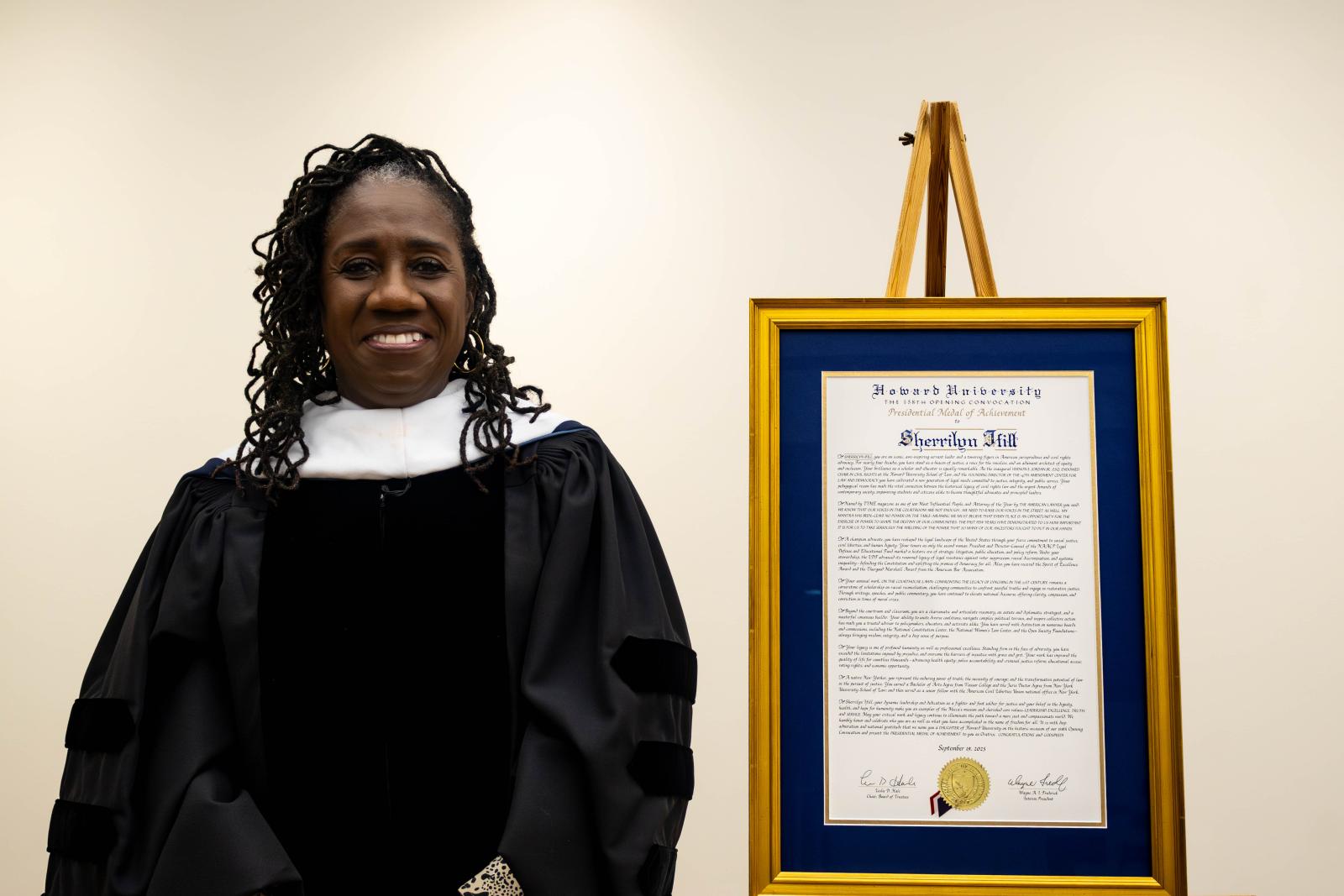
Ifill explained that the country’s refounding, or rebirth, came after the Civil War and sought to create a genuine multiracial democracy, with its “blueprint” in the 13th, 14th, and 15th Amendments. The 13th Amendment outlawed slavery. The 15th Amendment prohibits denying people the right to vote based on race or color. She described the 14th Amendment, which her law center is named after, as the centerpiece because it guarantees birthright citizenship and equal protection. Ifill said the amendments serve as a reminder of the duty to carry democracy forward.
She urged students to practice a “democratic imagination” that envisions and builds the country they want, even when change may seem distant.
“It’s critical that young people understand that our democracy is designed to be remade and refreshed,” she said. “We have the right, the duty, the obligation, to remake new and better iterations of democracy in this country.”
Watch the 158th Opening Convocation ceremony here. Photos by Skyla Jeremiah '26, Office of University Communications
Keep Reading
-
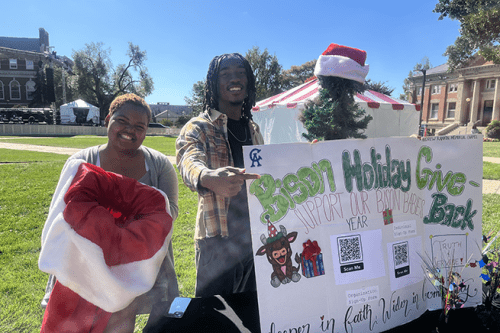 News
NewsThis Holiday Season, The Howard Community Continues to Define ‘Truth and Service’
Dec 17, 2025 4 minutes -
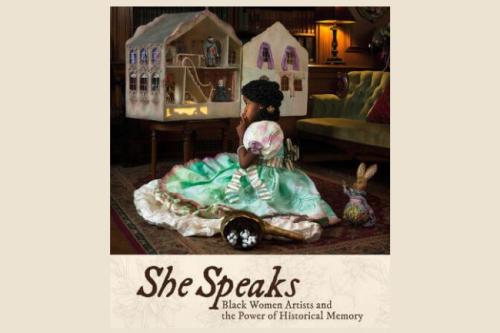 Vanguard
VanguardHoward University Gallery of Art Lends Elizabeth Catlett Works to Major Exhibition on Black Women’s Historical Memory
Jan 30, 2026 3 minutes
Are You a Member of the Media?
Our public relations team can connect you with faculty experts and answer questions about Howard University news and events.
Submit a Media Inquiry

